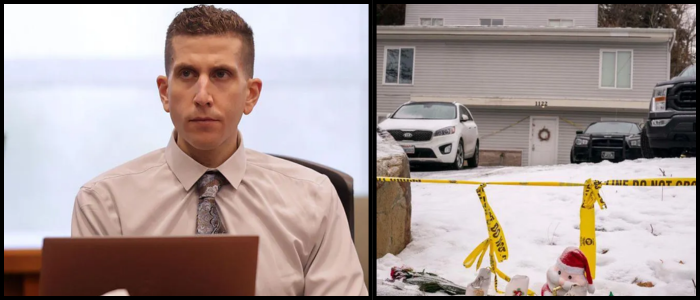Some relatives, like Kaylee Goncalves's father, Steve, criticised the decision, calling it a "deal with the devil." The motive for the killings remains a major unanswered question. In contrast, Madison Mogen's father, Ben, said the plea brought a painful chapter to a close, offering a form of closure after years of public attention and emotional trauma.
A Chilling Night and a Long Search for Answers
On the night of 12 November 2022, the four students enjoyed a typical night out near the University of Idaho campus. Xana and her boyfriend Ethan attended a fraternity party, while Madison and Kaylee visited a bar and a food truck before returning home around 2:00 AM.
In the early hours of 13 November, a masked attacker entered the house through a sliding glass door, moving from room to room, stabbing the four victims. Two other roommates were left unharmed, one of whom saw the attacker on his way out. The crime left the house covered in blood and stunned the town of Moscow, Idaho, which hadn't seen a murder in five years.
For weeks, the community and the nation waited for answers. Kohberger was eventually arrested on 30 December at his family's home in Pennsylvania. He had been studying criminology at Washington State University and was previously fired from his teaching role for grading too harshly. Despite extensive investigations, no clear motive has ever been publicly identified.
Public Obsession and Lasting Pain
The lack of information sparked a frenzy among online sleuths. Thousands of amateur investigators combed through digital clues, forming groups and theories. Some even harassed victims' families and roommates, falsely accusing them. The intensity of the speculation frustrated local law enforcement, who urged the public to avoid spreading misinformation.
Investigators relied on various pieces of evidence, including surveillance footage of Kohberger's white Hyundai Elantra and cell phone data placing him near the victims' home before and after the crime. The most crucial piece of evidence was a knife sheath found at the scene, containing DNA that matched a sample taken from Kohberger's family's trash.
A gag order prevented those involved from discussing the case, but it was recently lifted. The judge emphasised the public's right to information now that Kohberger has pleaded guilty.
Remembering the Victims and Moving Forward
A year after the murders, the house at 1122 King Road was torn down. The University of Idaho described the home as a painful reminder, and its removal was seen as a step toward healing. While some families felt mixed emotions, others welcomed the decision.
To honour the victims, a circular steel memorial structure engraved with their names was installed in a campus garden. It serves as a peaceful space where students and visitors leave flowers, candles, and notes. The structure lights up at night, a quiet tribute to the four lives lost.
The victims are remembered fondly by their loved ones. Madison Mogen was known for making people smile. Kaylee Goncalves was a determined protector of her family. Ethan Chapin, a triplet, was described as kind and joyful. Xana Kernodle was always surrounded by friends and had a strong personality.
While Kohberger's guilty plea ends the legal process, many questions about motive and his mindset remain unanswered. Still, for the grieving town and families, the focus now shifts to remembrance and healing.
World

Bryan Kohberger Pleads Guilty in Idaho Student Murders

Bryan Kohberger, 30, has pleaded guilty to the brutal 2022 murders of four University of Idaho students—Kaylee Goncalves, Ethan Chapin, Xana Kernodle, and Madison Mogen. His decision to accept a plea deal came just weeks before his death penalty trial was scheduled to begin. While the agreement spares his life, it has left many families of the victims torn between relief and frustration.















